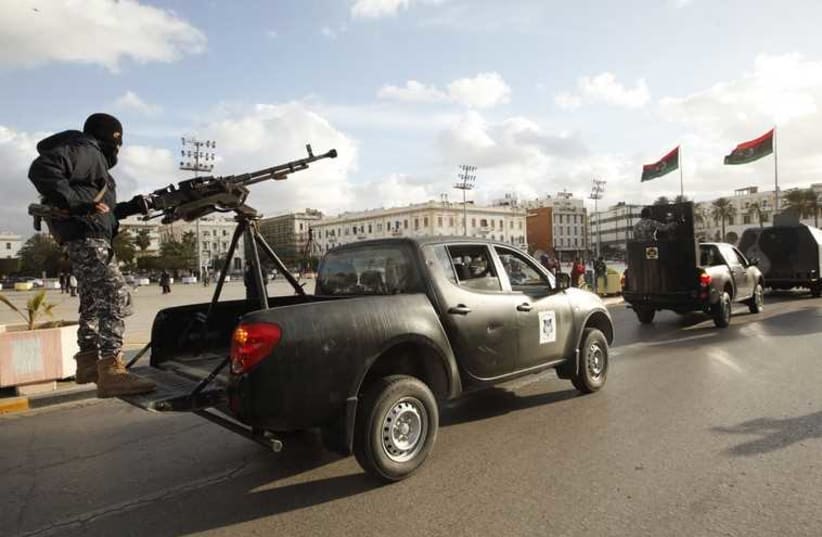"We have heard gunfire since morning in here," said a waiter in a cafe about 10 minutes' drive from the front line, his voice almost a whisper, as he served customers while military vehicles rushed by. "If the fighting gets any closer, I'll run away."
Like others, he refused to give his name, wondering whether General Khalifa Haftar, backed by his eastern Libyan National Army (LNA) forces, will soon be running Tripoli.
Government offices remain open, as does the only functioning airport -- but planes only land and take off at night, when Haftar's aging jets are less of a threat. Children are still going to lessons - unless their school has been turned into a hostel for those who have fled their homes.
In the center and northern parts of the city, there is no fighting, and cafes and shops bustle with customers, staying open as usual until late at night.
There is less traffic, though; many have left to stay with relatives, and others stay indoors. They regularly get updates from friends living closer to the front - and strain to hear whether the fighting is coming closer.
Although some streets in the southern suburb of Ain Zara, scene of the heaviest fighting, have been changing sides several times a day, overall the front line is static.
Forces loyal to Libya's internationally recognized government, based in Tripoli, have barricaded the main southern arterial roads with sandbags and shipping containers to deter Haftar's tanks and armored personnel carriers.
The few buses and private cars on those roads give way to military vehicles with anti-aircraft mounted on the back, speeding to and from the front line.
Yet pharmacies, bakeries and shops selling microwaves and furniture still line the street, just as they do in the city center, almost as far as the sandbags.
"THIS IS NORMAL HERE"
Nextdoor to the cafe, Ameen Trabulsi plans to keep his small grocery shop open, just as he has done during the previous - albeit smaller - armed clashes that have been a part of life in Tripoli since 2011.
"This is normal in Libya," he said, before adding: "The situation now is calm but, who knows, it could worsen anytime."
Business is actually better for him now as families displaced by fighting have been put up in a student hostel nearby, and flock to his store.
Opposite his shop, veiled women who have just fled Ain Zara wait at the gate of a municipal building, trying to attract the attention of officials inside scurrying to find sleeping places in schools converted to shelters.
The United Nations says more than 9,000 residents have already been displaced. Outside the building, a truck packed with mattresses stands by.
While the city center is still unscathed from the latest fighting, there are plenty of reminders there too of what war can do.
The shiny blue tower that houses the state oil firm NOC and the Foreign Ministry overlooking the Mediterranean still have burned out widows and blackened walls from attacks by Islamic State militants last year.
Some of those who have stayed feel so accustomed to spasms of violence, fuel shortages and a dysfunctional government that they see no reason to panic now.
"I'm not afraid. Life goes on," said 68-year-old retiree Ali Lafla, sitting outside his favorite cafe in the upmarket Ben Ashour district, close to the center but still only 11 km (7 miles) from the front line.His wife and his four sons and three daughters, all married, have all decided to remain. "God will decide what happens next - but I'm staying in Tripoli."
